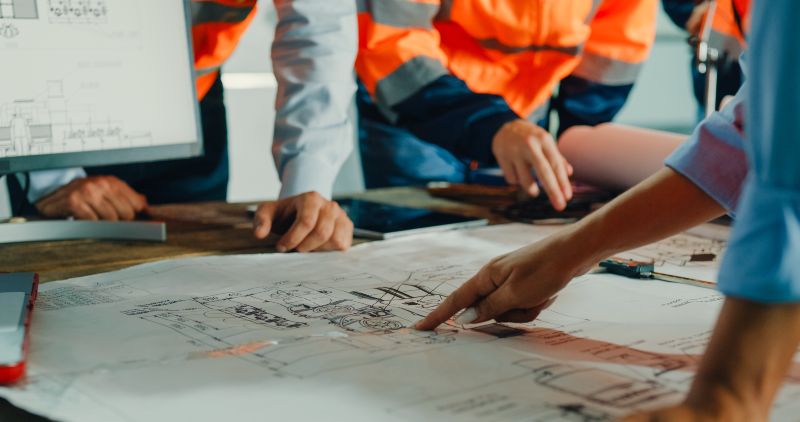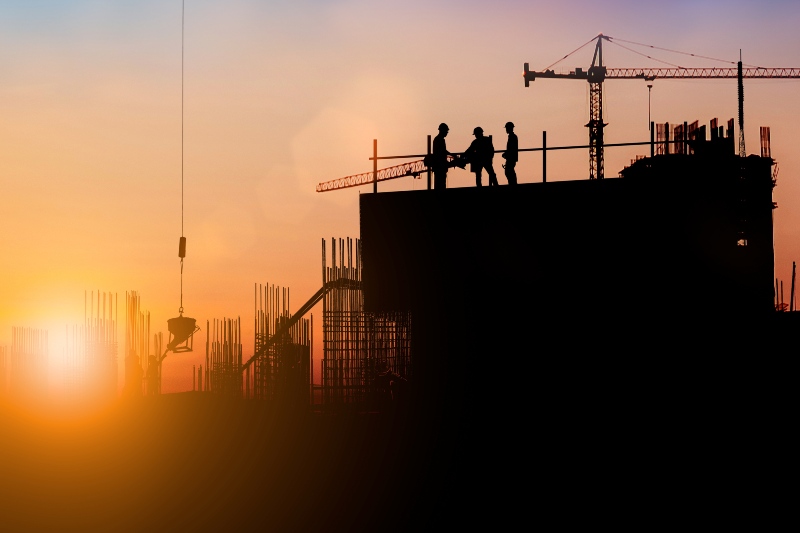How to Effectively Plan Your Construction Project Timeline
How to Effectively Plan Your Construction Project Timeline
When it comes to commercial construction, staying on track impacts both your time and budget. At Advanced Building Corporation, we understand the complexities involved in managing a construction project timeline. A well-planned timeline can save your business time, money, and headaches. Let’s walk through how to plan your construction project timeline effectively, from understanding its importance to leveraging technology and tools to keep your project on track.

What Is a Construction Project Timeline?
A construction project timeline is a detailed schedule that outlines all the stages of a project from start to finish. It includes key milestones, such as design approvals, permitting, material delivery, and project phases like demolition, foundation work, and finishing touches. The timeline of a construction project ensures that all parties involved, such as contractors, engineers, and stakeholders, are on the same page, helping avoid delays or cost overruns.
Why a Construction Timeline is Crucial
Creating a construction project timeline schedule is essential for several reasons. First, it enables efficient resource allocation by properly scheduling labor, equipment, and materials, minimizing downtime and maximizing productivity. Second, it supports budget control by helping to avoid unnecessary costs, such as rush orders or overtime labor, which can occur due to unexpected delays. Additionally, a clear project timeline improves communication, ensuring every team member knows what to expect and when, which reduces misunderstandings or miscommunications. Finally, timelines play a critical role in risk mitigation, as they allow for the anticipation of challenges like inclement weather or supply chain disruptions, facilitating better contingency planning.
Key Steps to Plan Your Construction Project Timeline
Planning the timeline of a construction project involves several key steps. Here’s how you can create an efficient and effective timeline:
- Define the Scope
Clearly outline the goals, deliverables, and scale of your project. This helps in determining the time required for each phase. - Set Milestones
Break the project into manageable phases—design, permits, construction, inspections, and handoff—and set deadlines for each. - Account for Dependencies
Identify which tasks must be completed before others can begin. For example, foundation work must be completed before framing. - Consider Contingencies
Incorporate buffer time to account for unforeseen delays like bad weather, material shortages, or permit delays. - Assign Responsibilities
Ensure all contractors, engineers, and other professionals know their roles and deadlines for each task in the engineering construction project timeline.
Best Tools for Managing Your Construction Timeline
Managing the construction timeline for projects can be challenging without the right tools. Some of the most effective tools include project management software like Procore, Buildertrend, or CoConstruct, which allow you to track progress, allocate resources, and manage communication across the team. Gantt charts are also highly useful, as they visually display the start and end dates for each phase of the project, providing a clear overview of the timeline. Additionally, the Critical Path Method (CPM) helps identify the sequence of crucial tasks that must be completed on time to keep the project on schedule.

Common Challenges and How to Avoid Them
Even with a well-planned timeline, challenges can still arise. To avoid common pitfalls, it’s important to be prepared for unexpected delays by building a buffer into your schedule to account for issues beyond your control. Miscommunication can also be a major challenge, so regular updates and check-ins with all team members are essential to prevent confusion or misaligned expectations. Additionally, clearly defining the project scope at the outset is crucial to avoid scope creep, which can lead to unnecessary changes that may derail your construction project timeline schedule.
Leveraging Technology for Timeline Management
Technology plays a vital role in ensuring your project stays on track. Tools like drones, AI-based forecasting software, and real-time project tracking apps can streamline processes and improve accuracy in timeline management. Incorporating these technologies helps you stay ahead of potential delays and ensure your construction timeline for projects is optimized for efficiency.
How Advanced Building Corporation Helps You Stay on Track
At Advanced Building Corporation, we pride ourselves on delivering commercial construction projects on time and within budget. Our team understands that a well-managed project timeline construction is critical to the success of your business. We leverage the latest technology, best practices, and expert project managers to ensure your engineering construction project timeline is realistic, flexible, and achievable.

Contact Advanced Building Corporation for Consultation
Ready to take the stress out of managing your next commercial construction project? Contact us today for a consultation and let us help you stay on track with a detailed and reliable construction project timeline. We have been serving in South Central Wisconsin and the surrounding counties for over 30 years, giving us the experience and know-how to make your construction a success. Together, we’ll make sure your project runs smoothly, efficiently, and on time. By focusing on detailed planning, utilizing the right tools, and avoiding common challenges, you can ensure the success of your commercial construction project from start to finish.
